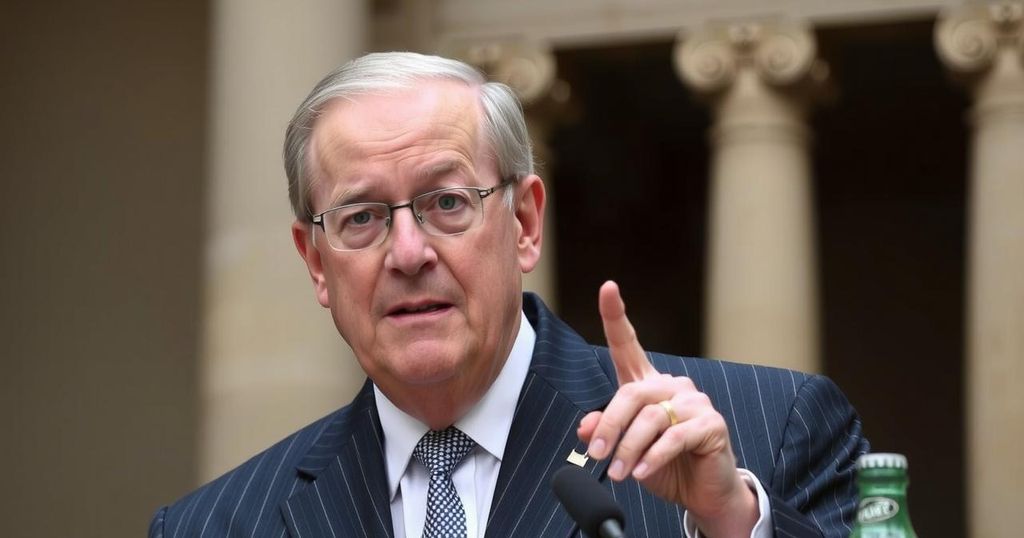Prabowo’s Corruption Pardon Plan Sparks Controversy Over Accountability

President Prabowo Subianto’s proposal to pardon corrupt individuals who return stolen assets has faced criticism from anti-corruption advocates, including Lakso Anindito. He argues that this approach could exacerbate corruption rates, emphasizing the need for stronger asset recovery measures and independent law enforcement. Critics worry that such pardons would undermine the deterrent effect necessary to combat corruption effectively.
President Prabowo Subianto’s proposal to pardon corrupt individuals who return their stolen assets has drawn significant criticism. Lakso Anindito, Chairman of the Indonesia Memanggil 57+ Institute, argues that such moves could worsen corruption rates rather than mitigate them. He emphasized that pardoning corruptors would undermine the deterrence necessary to prevent these crimes, suggesting instead that the government focus on robust asset recovery and uphold the independence of law enforcement.
Lakso pointed out that offering amnesty fails to tackle the problem of corruption, which remains prevalent. During a recent address to students in Cairo, President Prabowo expressed his intention to allow corrupt individuals the chance to return proceeds from their crimes in exchange for government protection. This initiative, he stated, aims to offer a pathway for rehabilitating corrupt offenders while maintaining their anonymity. Critics, however, are concerned that such a policy could encourage further misconduct among public officials by removing the fear of repercussions.
Corruption remains a critical issue within Indonesia, prompting ongoing debates about effective strategies to combat this pervasive problem. President Prabowo Subianto’s administration has sought various approaches to address corruption, including the controversial discussion on pardoning corruptors under specific conditions. This latest proposal has reignited discussions regarding the ethical implications and potential consequences of granting leniency to offenders within a legal framework that ostensibly seeks accountability and transparency.
In conclusion, President Prabowo’s plan to pardon corrupt individuals returning stolen assets faces substantial opposition from anti-corruption advocates. Critics assert that this approach may eliminate critical deterrents against corruption and fail to address the fundamental issues surrounding corrupt practices in Indonesian governance. There is a consensus advocating for a focus on enhancing legal and structural measures to ensure robust enforcement against corruption.
Original Source: en.tempo.co







